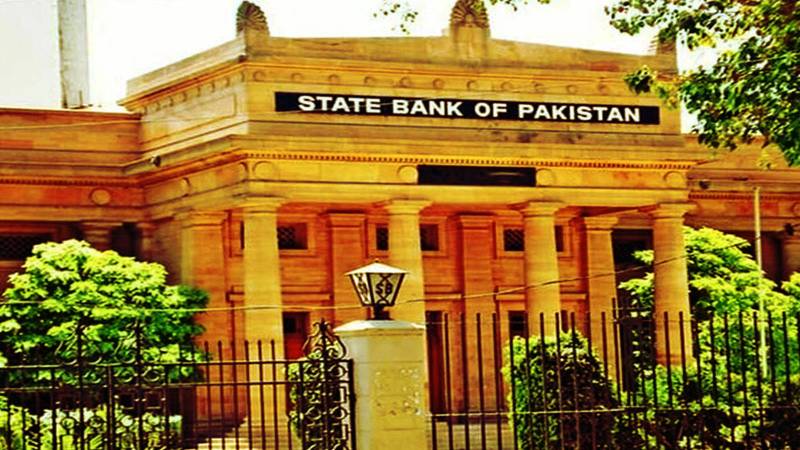
Just prior to the announcement of the federal budget, the State Bank of Pakistan cut the country's interest rates by a whopping 150 basis points, bringing it down from a high of 22% to 20.5%.
The rate cut was decided during a meeting of the central bank's Monetary Policy Committee (MPC) the other day. The new rates would be applicable from June 11, 2024.
The MPC noted that there has been a significant decline in inflation since February and that it is broadly in line with expectations. It added that the May outturn was better than anticipated earlier. The committee assessed that underlying inflationary pressures were also subsiding amidst the central bank's tight monetary policy stance, supported by fiscal consolidation. This was reflected by the continued moderation in core inflation and ease in inflation expectations of both consumers and businesses in the latest surveys.
At the same time, the MPC highlighted some upside risks in inflation in the near term associated with upcoming budgetary measures and uncertainty regarding the future price of energy products. Notwithstanding these risks and the easing in interest rates, the MPC hoped that the cumulative impact of monetary tightening in the past would keep inflationary pressures in check.
Moreover, since its last meeting, the MPC highlighted certain key economic developments, including real GDP growth at a moderate 2.4% in the ongoing fiscal year 2023–24, per provisional data, with subdued recovery in industry and services partially offsetting the strong growth in the agriculture sector. Moreover, the MPC noted a reduction in the current account deficit, which helped improve the country's foreign exchange reserves to around $9 billion. The reserves witnessed an increase despite the country having to make large debt repayments amid weak official inflows.
The MPC noted that the government has approached the International Monetary Fund (IMF) for an Extended Fund Facility (EFF) program, which, if approved, could unlock financial inflows that will help further build up the country's foreign exchange buffers.
The committee noted that the country has benefited from the drop in oil prices in the international market. However, it was noted that non-oil commodity prices have continued to inch up.
Based on these developments, the committee stated that, overall, this was an appropriate time to reduce the policy rate. It was further noted that the real interest rate remains significantly positive, which makes it important to continue guiding inflation to the medium-term target of five to seven percent.
The central bank's monetary policy committee also emphasised that future monetary policy decisions will remain data-driven and responsive to evolving developments related to the inflation outlook.
On key sectors, such as inflation, the MPC noted that it had decelerated to 11.8% percent in May 2024, down from 17.3% in April.
The MPC noted that a reduction in inflation was possible due to its tight monetary policy stance and due to the sharp reduction in prices of critical commodities such as wheat, wheat flour, and some other major food items, along with the downward adjustment in administered energy prices — primarily fuel costs.
Core inflation, it said, had also decelerated from 15.6% to 14.2%. The committee, however, warned that the near-term inflation outlook was susceptible to risks emanating from budgetary measures taken for the fiscal year 2024-25 and future adjustments in electricity and gas tariffs.
"The MPC foresees a risk of inflation to rise significantly in July 2024 from current levels, before trending down gradually during FY25," the statement said, adding that the MPC also observed sharp reductions in wheat prices have historically proved to be temporary.
The committee said that per its assessment, the current monetary policy stance remains appropriate to ensure that inflation stays on a downward trajectory.
In the fiscal sector, the committee said the country's indicators continued to show improvement during the 10-month period between July and March FY24.
The key was a primary surplus that increased to 1.5% of GDP, while the overall deficit remained almost at last year's level.
This improvement largely reflected the impact of the increase in tax and PDL rates, higher SBP profit, and lower energy sector subsidies.
The committee said there had been limited progress in addressing the structural weaknesses in broadening the country's tax base and initiating energy sector reforms. Hence, FY25 budgetary measures are also expected to be largely rate-based. Against this backdrop, the committee emphasised that fiscal consolidation through broadening the tax base and reforming loss-making public sector enterprises would help the country achieve fiscal sustainability more sustainably.
This was also imperative to keep inflation on a downward trajectory and contain external account pressures.

